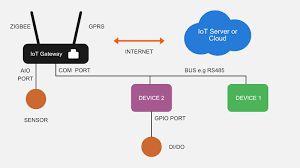Selecting the right home automation manufacturers is crucial for ensuring that your home automation system is reliable, efficient, and tailored to your needs. Here are detailed steps and considerations to guide you in making the best choice.
Assess Your Home Automation Needs
Determine Your Goals: Understand what you want to achieve with home automation. Are you focusing on security, energy efficiency, convenience, or a combination of these? Define your primary objectives.
List Required Features: Depending on your goals, list the specific features you need, such as automated lighting, smart thermostats, or security systems. Consider the future scalability of these systems as your needs may evolve.
Research Manufacturer Reputation
Check for Experience and Expertise: Look for manufacturers with a proven track record in home automation. Experience in the industry is a good indicator of reliability and quality.
Read Customer Reviews and Testimonials: Customer feedback can provide insights into the reliability of the products and the quality of customer service offered by the manufacturer.
Evaluate Product Quality and Innovation
Inspect Product Specifications: Analyze the specifications of the home automation systems offered. Look for systems that offer the latest technology and are compatible with multiple devices.
Consider Innovation and Updates: Choose manufacturers that continuously update their products and incorporate the latest technologies. This ensures your system remains compatible with new devices and technologies that emerge.
Compare Costs and Value
Analyze Initial Costs and Long-Term Value: Evaluate the initial cost of the home automation system and balance it against long-term benefits. Consider factors like energy savings, which can offset the initial investment over time. For instance, a smart thermostat can save up to 20% on heating and cooling costs.
Look for Warranty and Support: A good warranty and responsive customer support are essential. These factors can significantly affect the long-term maintenance costs and performance of your home automation system.
Check Compatibility and Integration
Ensure System Compatibility: Make sure the home automation system is compatible with existing devices in your home and can be integrated with new technologies as they become available.
Integration Capabilities: The best home automation systems should seamlessly integrate with various devices and platforms, allowing for a unified home automation experience.
Conclusion
Choosing the right home automation manufacturer involves a thorough evaluation of your needs, a deep dive into the manufacturer's reputation and product quality, and a careful assessment of costs versus benefits. By considering these factors, you can select a manufacturer that will provide a reliable, efficient, and scalable home automation system that enhances the functionality and comfort of your home.
